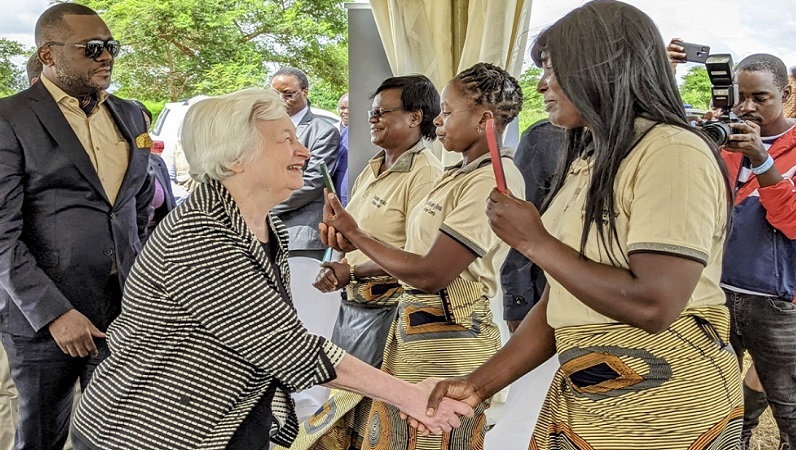No pay, no say. That is what African nations would like to tell the US, as it claims a top seat at a table it refuses to put money on.
In a classic case of American exceptionalism, the US has put a Treasury official forward to co-chair the Green Climate Fund board, apparently unabashed at its meagre contribution to the pot.
The world’s biggest economy and biggest historic polluter delivered $1 billion to the GCF, more than five years ago. A further $2bn Obama-era pledge – loose change in the federal budget – remains unpaid.
The $11.4bn of annual climate finance Joe Biden says he will provide by some means or other is equivalent to six days of US military spending. And yet it has not reached developing countries.
It is convenient for the Democratic White House to blame Republican lawmakers. The midterm election results didn’t make it any easier to deliver international climate finance. But the issue is not exactly high on any US politician’s priority list. When did you last hear Biden make the case for it to Congress?
The kindest interpretation is that US officials want to make sure the GCF has fixed its workplace cultural problems before committing more money. That would not explain why the Biden administration has been so slow to direct aid through other channels.
Of course, the African officials on the GCF board are not empowered to be blunt. They can only cite a passively phrased governing instrument – the “Fund shall receive financial inputs from developed countries” – and make thinly veiled jabs at the stingiest rich kid in the room.
This week’s stories
- Azerbaijan weaponises conservation law in conflict with Armenia
- Africa objects to US chairing UN climate fund, citing unpaid $2bn
- Despite killer floods, Nigerian presidential frontrunners dismiss climate change
- Portugal agrees to swap Cape Verde’s debt for environmental investment
- WoodMac wins: The consultancy giving cover to fossil fuel projects
